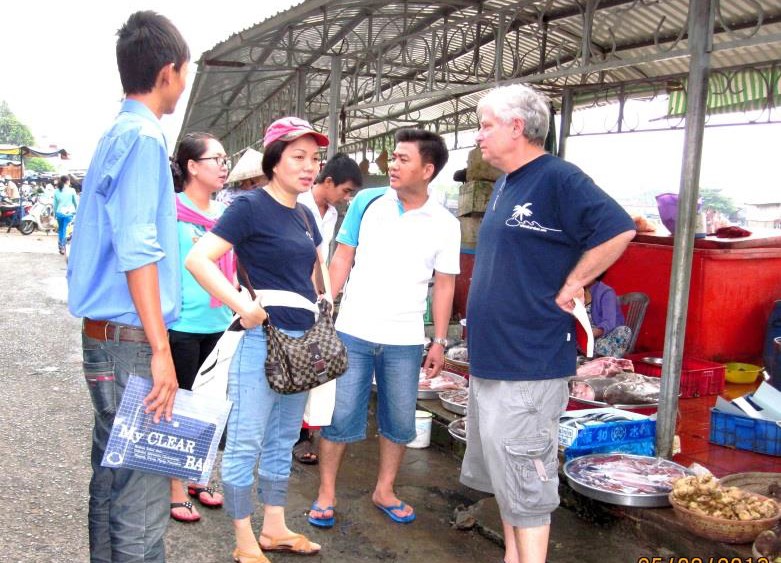
Scouring local markets to examine fish species is not where Dr. Dang Thuy Binh expected to find herself. She dreamed of being a journalist but was inspired by her mother to study biology, for which she later found her great passion, especially marine biodiversity and conservation.
However, Vietnamese women face a lot of challenges in the science and technology field. Women are expected to spend time on household chores and caretaking, rather than outside work. Women are viewed as having health limitations because they need to take time off to have children.
“As a woman, I have had various difficulties pursuing my research career. I have had to made great efforts to make a balance between work and family,” said Ms. Binh, adding that in Vietnam there are also certain barriers for women in the workplace. “I had to make a greater effort to work, found a way to put aside the financial difficulty and improve my English skills to seize opportunities to study overseas and take part in international research projects.”

Dr. Dang Thuy Binh (center) and her research partner have a discussion at the fish dock (Photo courtesy: Dr. Binh)
Now, fifteen years later, as a senior researcher and lecturer of biodiversity at Nha Trang University you can find her along the shores of the Mekong River looking for fish species to study or teaching Evolution and Biodiversity to Vietnamese and international students. She is among only a few female scientists at the Institute of Biotechnology and Environment under Nha Trang University, which is located in Vietnam’s central southern and coastal Province of Khanh Hoa. As the Institute’s Vice Director, she has led or taken part in various national and international research projects and made significant contributions to marine biodiversity.
Her current research project studies the genetics and connectivity of fish species. The research will provide the basis to examine the genetic adaptation of fish populations due to the changing conditions of the Mekong Delta caused by increasing effects of damming, development, agriculture and climate change. The project receives support from the Partnerships for Enhanced Engagement in Research (PEER) Science Program supported by USAID and U.S. National Science Foundation.
This PEER Science project, in which Dr. Binh is the principal investigator, is expected to produce valuable information about the connectivity of aquatic populations within and across the mouth of the Mekong Delta that can be used for improved environmental governance, such as delineating management zones and formulating strategies for biodiversity conservation.
“I am so happy that am able to make my small contributions to reasearch on marine biodiversity as this issue is so important for biodiversity conservation, fisheries management and tourism development not only in Vietnam but also in South East Asia,” Dr. Binh said.
